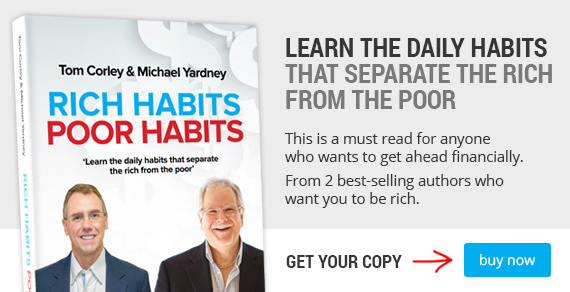
There are many wealthy, successful people who hate getting up in the morning.
They hate their life because they hate their job, despite the fact that they make a lot of money doing what they do.
The reality is that they don’t really hate what they do for a living. Rather, they hate the stress that accompanies their job. They hate the deadlines, the urgency, the relentless pressure to complete projects, the workload and the never ending sixty-hour workweeks, which makes them strangers to their own families.
That’s what happens when you chase the money.
When you chase a dream, it’s very different.
A dream may never pay off financially or it may take many years before you begin to see your labor of love pay off financially.
And chasing a dream comes with its own stress, the worst of which is financial – not making enough money to support your family.
In my Rich Habits study, 82% of the self-made millionaires pursued a dream. For most, it took 32 years to become rich. During those 32 years, while pursuing their dream, they did what they had to do in order to make enough money to provide for their families. It wasn’t easy.
But because they truly loved what they were doing, because doing what they loved made them happy, they were willing to devote many thousands of hours improving their skills and expanding their knowledge. They practiced deliberately every day and, after many years, became leading experts in their industry.
Because they were leading experts, the world was more than happy to pay them a premium for the products or services they provided. And those premiums made them very rich, while maintaining their happiness.
When you chase the dream, the money will eventually follow. Money is attracted to those who add the most value to the world.









